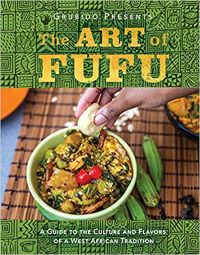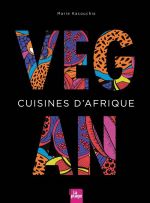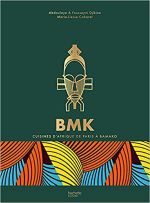African cookbooks
 The collection of the African Studies Centre Leiden Library currently holds nearly 60 cookbooks, half of which are produced in Africa. The cookbooks published in Africa are often oriented at one specific country; those from outside often present recipes from all over the continent. Some cookbooks focus on certain types of dishes, others cover a wide spectrum of foods: from sweets and snacks to main dishes and drinks.
The collection of the African Studies Centre Leiden Library currently holds nearly 60 cookbooks, half of which are produced in Africa. The cookbooks published in Africa are often oriented at one specific country; those from outside often present recipes from all over the continent. Some cookbooks focus on certain types of dishes, others cover a wide spectrum of foods: from sweets and snacks to main dishes and drinks.
Swallowed, not chewed
Some books address an audience that is familiar with the terminology it uses, such as the Survivors cookbook, a recipe book compiled in 2020 by a group of women from a Zimbabwean church. The book aims to help Zimbabwean families survive in difficult circumstances. It does not need to elaborate on what sadza is, or pearlenta (Zimbabwean instant porridge, referred to by its brand name).
Other cookbooks provide explanation and pictures of ingredients, or information about the history of dishes or about how they are typically served and eaten. The soft piece of fufu that you break off the larger ball and form into a scoop with which you take some soup from a separate bowl is to be swallowed, not chewed. Chewing and savouring is reserved for the soup, which remains behind in your mouth with its tasty pieces of vegetable, fish or meat. (The art of fufu : a guide to the culture and flavors of a West African tradition).
Authenticity and adaptation
There are those cookbooks that deal with 'traditional cooking' or (claim to) present 'authentic' recipes, and there are those that offer adapted recipes for who cooks elsewhere in the world or comes from a different cooking tradition. An example of the latter is The Kenya cookery book and household guide, which is an update, again by a group of women from a church, of The Kenya settlers' cookery book, a recipe book that saw several editions and dates back to 1928.
Two recent cookbooks, published in France by diaspora authors, do not claim authenticity, nor adaptation. They rather aim at the creative fusion of African and European (French) cooking cultures and trends. One recent culinary trend that can now be followed the African way is vegan cooking.
 Vegan cooking
Vegan cooking
Though in African kitchens meat tends to take centre stage, cooking with just vegetable ingredients has a long and rich history. With her book Vegan cuisines d’Afrique, Marie Kacouchia, Parisienne of Ivorian heritage, aims to show that vegan African cooking is not just cooking 'without', but creative and delicious cooking; her book wants to be an ode to cultural mixing and culinary diversity. In its detailed index of ingredients, you can search for dishes with cauliflower, spinach, plantain or cowpeas, or with egusi, cumin, basil or one of nine varieties of chili peppers.

Vegan recipes can also be found in BMK : cuisines d'Afrique de Paris à Bamako, by Abdoulaye and Fousseyyni Djikine and Marie-Liesse Cabaret; the first two authors are brothers of Malian heritage who grew up in Paris. This book also includes recipes with meat, fish, eggs and dairy, but vegan (and vegetarian) recipes can easily be extracted, as they are marked as 'vegan' or 'veggie'. Other keywords in this book (which like the other one has a handy index of ingredients): 'super food', 'street food', 'comfort food' and 'gluten free'!
Bon appétit!
(For all cookbooks in the African Studies Centre collection, click here)
Heleen Smits

